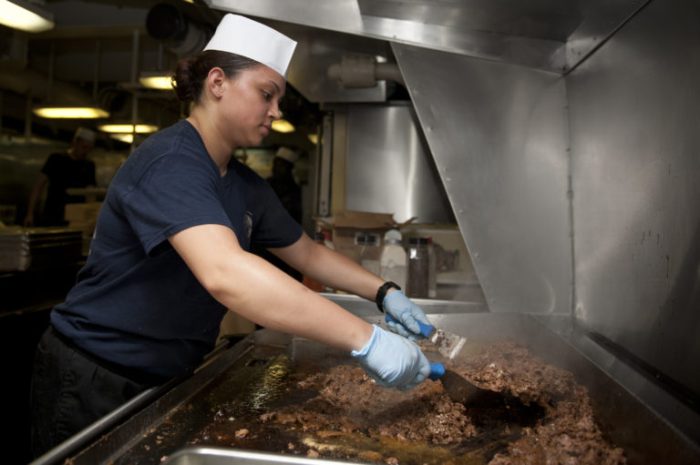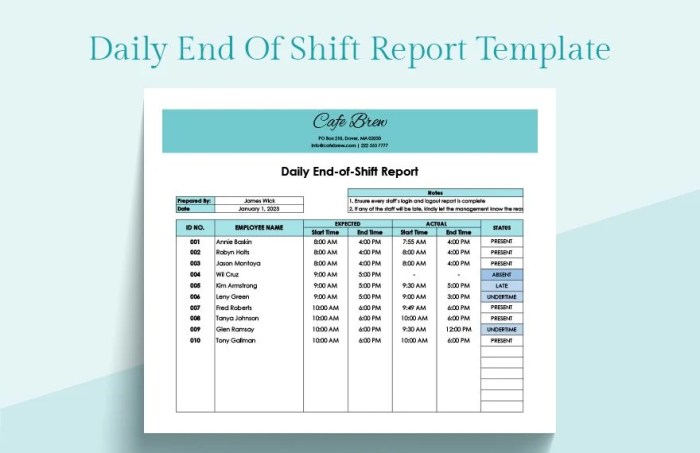At the end of a shift food handlers – At the end of a shift, food handlers play a crucial role in ensuring the safety and quality of food for consumers. This comprehensive guide delves into the essential food safety practices that food handlers must adhere to, emphasizing the importance of proper cleaning, food storage, and waste management.
By following these guidelines, food handlers can prevent foodborne illnesses, maintain food quality, and comply with regulatory requirements.
Food Safety Practices at the End of a Shift

Maintaining food safety practices at the end of a shift is crucial for preventing foodborne illnesses and ensuring the safety of consumers. Neglecting these practices can have severe consequences, including food spoilage, contamination, and potential harm to public health.
Food handlers must adhere to proper food safety measures at the end of their shift to ensure that food remains safe for consumption. These practices include cleaning and sanitizing work surfaces, equipment, and utensils, storing food properly, and handling food safely to prevent cross-contamination.
Cleaning and Sanitation
- Clean and sanitize all work surfaces, including counters, tables, and cutting boards.
- Sanitize all equipment and utensils that have come into contact with food, including knives, spoons, and measuring cups.
- Use appropriate cleaning and sanitizing agents according to manufacturer’s instructions.
Food Storage and Handling
- Store food properly to prevent spoilage and contamination.
- Maintain proper temperatures for food storage, refrigerating perishable foods at 40°F or below and freezing foods at 0°F or below.
- Cool hot food rapidly to prevent bacterial growth.
- Reheat food to an internal temperature of 165°F to ensure safety.
- Discard food that has been held at unsafe temperatures or shows signs of spoilage.
Waste Management
| Type of Food Waste | Disposal Method |
|---|---|
| Food scraps | Compost or discard in designated waste containers |
| Spoiled food | Discard in designated waste containers |
| Grease | Dispose in grease traps or designated containers |
Documentation and Reporting, At the end of a shift food handlers
Documenting and reporting food safety practices is essential for ensuring accountability and compliance with regulations.
- Use a daily food safety checklist to record cleaning, sanitizing, and food handling activities.
- Maintain records of food temperatures, cooling times, and any food safety incidents.
- Report any food safety concerns or violations to supervisors immediately.
Training and Supervision
Training and supervision are crucial for ensuring that food handlers follow proper food safety practices.
- Provide food handlers with comprehensive food safety training.
- Supervise food handlers regularly to ensure compliance with food safety practices.
- Hold food handlers accountable for maintaining food safety standards.
Frequently Asked Questions: At The End Of A Shift Food Handlers
What are the consequences of neglecting food safety practices at the end of a shift?
Neglecting food safety practices at the end of a shift can lead to foodborne illnesses, contamination, and spoilage. It can also result in legal liabilities, reputational damage, and financial losses for food establishments.
What are the key elements of an effective food safety training program for food handlers?
Effective food safety training programs cover topics such as foodborne illnesses, personal hygiene, proper food handling techniques, cleaning and sanitation procedures, and temperature control. They should be interactive, engaging, and provide opportunities for hands-on practice.
What are the environmental benefits of effective waste management practices?
Effective waste management practices reduce the amount of food waste sent to landfills, conserving natural resources and reducing greenhouse gas emissions. They also promote recycling and composting, which further contributes to environmental sustainability.

